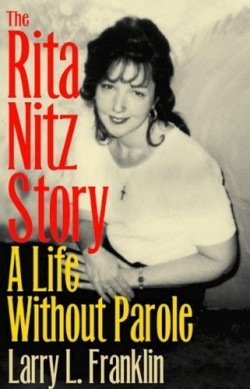The Rita Nitz Story
A Life Without Parole
- 2005 INDIES Winner
- Bronze, True Crime (Adult Nonfiction)
In 1988, in rural Illinois, the decapitated body of a man was found in a field not far from several parking lots known to be frequented by gay men. Richard Nitz, a local man with a prison record, a violent past, and a documented hatred of homosexuals, was convicted of the murder. A prosecution witness claimed that Rita Nitz, Richard’s estranged wife, witnessed the crime and that she helped remove the body and cover up the murder. Rita is now serving life in prison, without the possibility of parole. To this day she claims that she is innocent, that she neither participated in nor witnessed the murder.
The author’s telling of Rita’s story is part true-crime novel and part sensitive and reflective memoir; it briskly engages the reader. Franklin does more than report on a brutal crime and its subsequent trials; he takes the reader along on his own investigative journey. He describes how he became interested in this woman and the crime she was accused of near where he lives. By writing the book, he sought to discover what really happened on that April night when a young gay man was murdered.
Franklin shares with readers his own reactions to the many interviews, conversations, and research he undertook. He is a curious writer who exhibits a wonderful willingness to ask questions: the questions that trained investigators failed to ask, and the questions that readers will find themselves asking as they read.
This is Franklin’s first book, which he began while earning an MFA in creative nonfiction at Goucher College in Baltimore; he has spent most of his professional life in the financial services industry. The story, like many true crimes, is complicated, and at times the narrative can be confusing. A timeline or chronology of events might have been helpful to readers, and a reference list of those Franklin talked to or who are mentioned in the text would have been a welcome tool.
Regardless, The Rita Nitz Story is a compelling read, not because it’s a slick thriller complete with gruesome photos of trial exhibits, but because Franklin is a passionate writer telling his readers a gritty tale—a story about a woman who has been a victim of one kind or another all of her life, and a story about how America’s judicial system treats those without resources or even the imagination to seek them. Also, it is the tale of how Franklin became the one to whom Rita Nitz said, “You’re the only one who has listened to my story.”
Reviewed by
Chris Arvidson
Disclosure: This article is not an endorsement, but a review. The publisher of this book provided free copies of the book to have their book reviewed by a professional reviewer. No fee was paid by the publisher for this review. Foreword Reviews only recommends books that we love. Foreword Magazine, Inc. is disclosing this in accordance with the Federal Trade Commission’s 16 CFR, Part 255.

